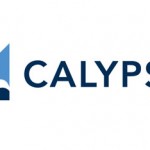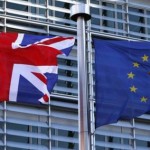Reputation: The Hardest Risk to Manage

GlaxoSmithKline’s unfolding bribery scandal is an object lesson in how a direct hit to its reputation can devastate a company’s finances.
Protecting an organization’s reputation is the most important and difficult task facing senior management teams and boards of directors today. Indeed, surveys conducted by the Risk and Insurance Management Society, The Economist Intelligence Unit (registration required) and Ace Insurance have concluded that one of the most pressing perils facing senior management teams today is reputational risk. The reason? Executives’ increased perception that their organization’s good name is a major source of its competitive advantage.
Reputation is all about how an organization is perceived by its stakeholders: customers, investors, regulators, the media and the general public. Many organizations have systems in place to monitor the perceptions of their customers. But they often don’t have a systematic approach to sharing information with other stakeholders. That’s crucial when a crisis emerges and an organization is left with a poor communication strategy to respond to the bad news.
CFOs know that an organization’s reputation forms part of its intangible assets, which include brand, human capital and goodwill. As such, reputation is valued as part of the company’s market capitalization. And differences in reputation are an important reason why organizations that apparently should be worth similar amounts can differ so widely in valuation.
Glaxo: The Cost of Reputational Damage
One large company that’s felt the hit to capital that reputational damage can inflict is GlaxoSmithKline. The biggest pharmaceutical maker in the United Kingdom, and One of the larger pharmaceutical multinationals in China with 7,000 staff, five factories and a research and development center, the company sells 29 prescription medications, three vaccines and nine over-the-counter (OTC) drugs in China.
According to a story in the December 17, 2013 Financial Times (registration required), a scandal involving bribery allegations have hurt GSK‘s bottom line, causing its sales in China to drop by 61 percent. Further, the company is today once again in the news for a bribery scandal, although this one is in Iraq.
To be sure, GSK’s pharma business in Iraq, with fewer than 60 employees, is far smaller than its footprint in China. However, “the damage to its reputation of these claims so soon after the China allegations,” the London Evening Standard reported on April 7 “could be vast.” Shares fell as London’s financial center was digesting the news.
Many organizations find it hard to stay in business after an event that damages their reputation. For their part, other giant companies than GSK that have made negative headlines recently like Citigroup, Target, Royal Caribbean and GM, and that have the financial resources to survive blows to their corporate reputations could find themselves in the news for months or longer. While the company might be left standing in such cases, those months of reputational damage could severely injure its capitalization.
Many credit agreements have a “material adverse change” clause that protects lenders against significant changes that have a significant effect on the business, assets and financial condition of the borrower. After the occurrence of a material adverse change event , lenders usually reserve the right to adjust the interest rate or other terms of the contract, while for already closed deals lenders may refuse any further borrowing and require immediate debt repayment.
What can CFOs do to help their organizations manage reputation risks? Here is a list of items that can be implemented in an organization to protect itself from a negative risk event:
1) Ensure ethical practices throughout the supply chain.
2) Establish strong risk controls on governance and compliance.
3) Develop a monitoring system to track threats to reputation.
4) Develop communication channels with internal and external stakeholders.
5) Establish a crisis communication plan.
There are two powerful reasons to establish a robust reputation-monitoring program. One stems from risk: severe reputational damage can score a direct hit on a companies’ ability to survive as a going concern. Equally persuasive, however, is that argument that effective reputational risk management can provide a strong competitive advantage. A good reputation strengthens market position, reduces the cost of capital and increases shareholder value. It insulates the brand, permits higher prices and helps to attract top talent. Nothing is more essential to the life of a corporation than reputation.
(By John Bugalla: a principal with ermINSIGHTS and Kristina Narvaez, president and CEO of ERM Strategies LLC).
Source: CFO





























